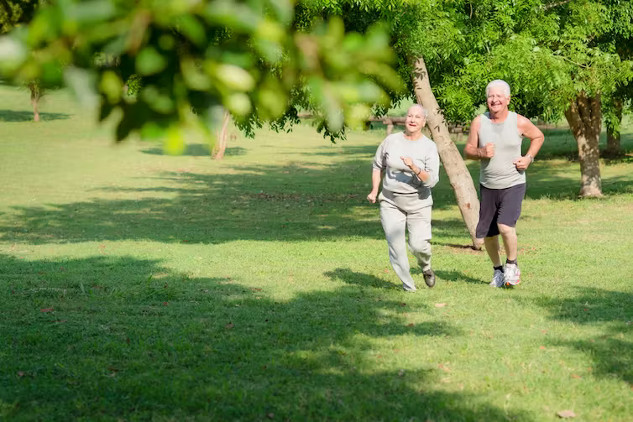 For maximum benefit, you have to break a sweat. Diego Cervo/Shutterstock
For maximum benefit, you have to break a sweat. Diego Cervo/Shutterstock
People who exercise only on the weekend have similar heart-health benefits as those who exercise throughout the week
Exercise is good for your overall health and your heart in particular. Guidelines recommend that we should be doing 150 minutes of moderate-to-vigorous activity a week. But does it matter when you do this exercise? Should you spread it out in the week or does it lose some of the benefit if you cram it in at the weekend?
A new study analysing data from the UK Biobank has attempted to answer this very question. Around 90,000 healthy, middle-aged people wore wrist bands (accelerometers) that tracked their activity. It recorded their activity levels for a week with particular attention to moderate-to-vigorous activity (more on that later).
The researchers found that in the six years after the accelerometer assessment, people who did regular moderate-to-vigorous activity had less stroke, heart attack, heart failure and atrial fibrillation (an irregular heart rhythm) compared with sedentary people.
Get The Latest By Email
The novel finding of this study was that there was no difference in outcomes in people who did more than half of their activity at the weekend compared with those who spread it out across the week. It didn’t matter when it was done, moderate-vigorous physical activity was associated with improved heart health.
In the study, the authors called people who did more than of their 150 minutes a week of moderate-to-vigorous activity “weekend warriors”. This gives the impression of Lycra-clad cyclists riding up mountains or muddied middle-aged men playing a gruelling 90 minutes of football.
Over 37,000 people in the study met the definition of the “weekend warrior” so why aren’t the roads filled with cyclists and the parks filled with footballers? It certainly seems to contradict the epidemic of obesity and sedentary lifestyle that we hear so much about.
Weekend warriors? Really?
It may seem like semantics, but the definition of the “weekend warrior” is important. In this study, the threshold used for moderate-to-vigorous exercise was three “mets” (metabolic equivalent of task). The mets scale is used to measure physical activity. For example, washing the dishes is 2.5 mets, vacuuming is 3.3 mets and walking at 3mph is 3.5 mets. To put this into context, cycling at 15mph on the flat is 10 mets.
The threshold of three mets is rather unambitious and seems like something that many people would achieve in their everyday lives without a concerted effort to exercise. So perhaps when thinking of the people in this study instead of being called “weekend warriors” they should have been called “Saturday strollers” or “Sunday stretchers”.
The other point about this study is that these people were not sports people or athletes but rather normal middle-aged people doing their normal activities, some of which included exercise and some of which were normal activities measured on an accelerometer.
This context is important when thinking about how we can use these results to inform our patients. I would not want anyone to think that doing two and a half hours of vacuuming or strolling at the weekend is enough to stave off heart disease. It is the bare minimum level of exercise. To see real benefits, you are going to need to break a sweat.
The relationship between exercise and heart health is simple: the more you exercise the greater the improvements in your health. This study did show that doing some physical activity is better for your heart than being sedentary, which is an important message for the many people not managing 150 minutes of moderate activity a week.
Knowing these limitations of this study, we should avoid the interpretation that it is OK to live a sedentary existence from Monday to Friday and then atone by doing an hour or so of strolling on a Saturday and Sunday.
The findings of this study do not support this interpretation. If 150 minutes without breaking a sweat is all you can manage, then it doesn’t matter when you do it. But if you can manage something more strenuous, then you really should make an effort to do it.
The findings of this study do not apply to more intense exercise, and if the opportunity comes to go for a bike to work on a Tuesday or go swimming on a Thursday, you should take it. Your heart will thank you.![]()
About The Author
Peter Swoboda, Senior Lecturer, Cardiology, University of Leeds
This article is republished from The Conversation under a Creative Commons license. Read the original article.
books_fitness







